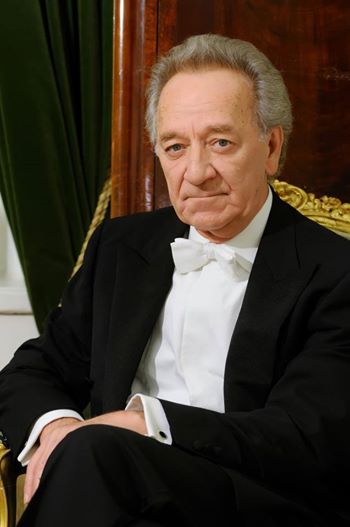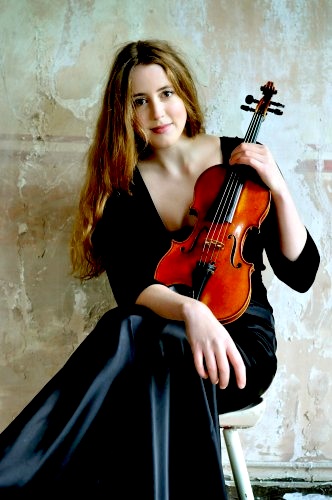Temirkanov, St. Petersburg Philharmonic prove Russian to the core

Russia’s most storied ensemble returned to Chicago on Sunday afternoon, and the St. Petersburg Philharmonic Orchestra largely lived up to its celebrated lineage and international reputation.
Founded under Czar Alexander III in 1882, the orchestra has been led by some of Russia’s greatest conductors over the past century-plus, including Arthur Nikisch, Serge Koussevitzky, and Evgeny Mravinsky (the last during its Soviet days as the “Leningrad Philharmonic”).
Yuri Temirkanov is currently marking his 25th season as conductor of the St. Petersburg Philharmonic. As shown in Sunday’s concert at Orchestra Hall, in an era of international symphonic homogenization, the St. Petersburg Phil remains distinctively Russian, with a brawny sonority, from the sepulchral double-basses on up. The woodwinds are especially characterful and time and again one noticed the freedom and individuality of their playing. There were some passing ensemble lapses, likely due to tour fatigue, but the playing was largely polished, weighty and thrilling.
The forces may have been more vast than the music requires, yet Rossini’s Overture to The Barber of Seville served as a worthy curtain raiser, big-boned yet with nimble and delightful wind solos.
Vilde Frang was the soloist in Prokofiev’s Violin Concerto No. 2. The Norwegian violinist has been getting the full court marketing treatment in recent seasons with glam and glossy photos, and a toney Warners recording contract.
Frang possesses an assured technique and her playing was faultless, intonation focused and style impeccable. Her 1709 Engleman Stradivarius has a slender sweetness and sinew well suited to Prokofiev’s acerbic concerto.
But from an interpretive standpoint, her performance was almost unrelievedly bland and boring. Frang’s coolly efficient reading showed little individuality or insight merely playing the notes well, prettily and as written.
One’s ears were drawn instead to Temirkanov’s accompaniment, where the deep-pile cellos, personality-plus winds and unison violin slides consistently engaged the ear. Rarely has this music felt more like a concerto for orchestra with violin obbligato.
Frang showed more engagement and individuality in her encore, a quirky and angular “Norwegian Folk Tune.”
The main event was clearly Rachmaninoff’s Symphony No. 2, which offered the large audience a chance to wallow in the composer’s hourlong traversal (with some trims) of luscious melodies played by, arguably, Russia’s finest orchestra.
From the dark subterranean cellos and basses of the opening bars, there was a feeling of inevitable rightness to this performance under Temirkanov’s direction. The pace was unhurried and expansive yet with a concentrated rigor and structural acuity that treated Rachmaninoff’s sprawling canvas as a cohesive dramatic entity rather than just a collection of good tunes.
The vast, brooding opening movement unfolded with a focused ebb and flow that felt wholly organic, climaxes powerful yet never raucous or over the top. The Scherzo had a quick pace yet the heart-easing middle theme opened up luxuriantly from the rich, darkly burnished strings.
In the long-breathed Adagio, Andrey Laukhin floated a plangent nostalgic clarinet solo, and Temirkanov’s direction was sterling, the long lyrical paragraphs finely controlled and flowing without ever veering over into undue sticky sentiment. The finale was fleet yet natural and built to an exultant coda that provided the requisite payoff without going over the top, the Philharmonic’s beefy sonority firmly rooted, from top to bottom.
The prolonged and enthusiastic ovations brought Temirkanov back for two encores: a bucolic and elegantly stringy rendering of Elgar’s Salut d’amor, and Stravinsky’s witty Vivo from Pulcinella, here given with galumphing good humor, the orchestra’s double-bass and trombone players earning their solo bows.
Posted in Performances





